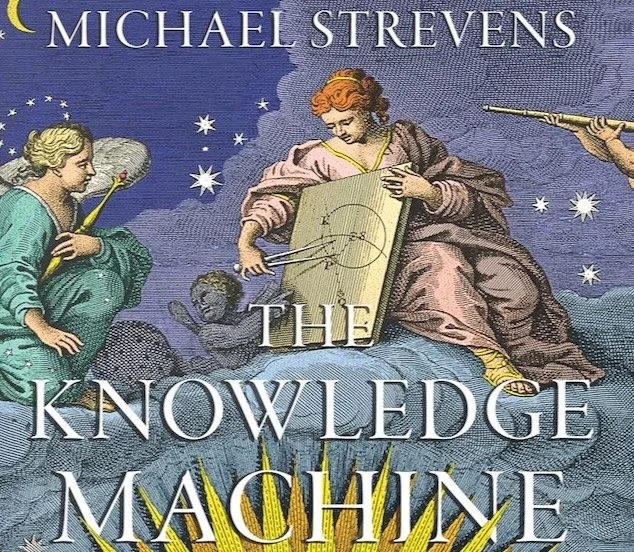Revisiting The Knowledge Machine
Returning to Strevens' "The Knowledge Machine" after months away feels like encountering an old argument with fresh eyes. My dog-eared copy still bears the traces of my first reading—underlined passages, question marks in margins, stars and circles points where ideas struck with particular force—but I'm finding new contours in his argument that I missed before.
What stands out most clearly now is the elegant simplicity of the Iron Rule's dual nature: its rigorous restrictions on scientific argument paired with complete freedom in private thought. I had initially focused on the constraints—"scientific argument should be sterilized, cleansed of all subjectivity"—but now I'm more interested in the creative tension this generates.
The shallow causal conception of explanation known and agreed-upon by all scientists means that "the rules of writing a legitimate paper are as plain as the rules of the game of chess." Scientists can trust that "even though they may call into question the quality of their moves, they will not challenge their fundamental permissibility." There's something liberating in these constraints that I hadn't fully appreciated.
On first reading, I was troubled by Strevens' observation that "most scientific work is more like bookkeeping or long division than like poetic self-expression or polar exploration." It seemed to diminish science's grandeur. But now I see how this mundane quality—this commitment to painstaking measurement and observation—creates the solid foundation for scientific progress that flashier approaches cannot match.
The stories of Santiago Ramon Y Cajal and Steven Weinberg resonate differently with me now. Their youthful philosophical enthusiasms giving way to "indefatigable persistence and enthusiasm for the observation of facts" no longer seems like a narrowing of vision but rather a focusing of intellectual energy. Perhaps there's wisdom in recognizing which problems are soluble through which methods.
I'm struck again by the paradox at the heart of the book: that modern science's human raw material is "molded into a strict order of unnervingly single-minded observers, measurers and experimenters," yet this collective enterprise produces knowledge that transcends individual limitations. As Strevens puts it, "working scientists go about their investigations guided by hunches, intuitions, ambitions, temperament, circumstance, culture," but the accumulated evidence eventually reveals which theories best explain reality.
What I missed in my first reading was how Strevens positions the Iron Rule as a historical achievement rather than a timeless truth. Scientific reasoning has evolved, and perhaps will continue to evolve. His suggestion that "if the heuristic and analytic power of science can be joined with introspective creativity," something even more powerful might emerge—this now seems like the most forward-looking part of the book.
The questions I scribbled in the margins months ago still lack clean answers: Should teachers really "work to deprive students of the ability to think philosophically, theologically or aesthetically" to make them better scientists? Is it true that "the purity of scientific reasoning must not be adulterated by nonempirical strains of thought"? But I'm more comfortable with the ambiguity now, more willing to see these tensions as productive rather than problematic.
Strevens' closing thoughts on the "fighting spirit, self-interested ambition" needed for scientific progress strikes me now as surprisingly honest. Science requires not just method but motivation—the drive to play the game to win, even when that game is the pursuit of truth. There's something refreshingly human in this acknowledgment, a recognition that even our most objective institutions rest on subjective foundations.
As I close the book again, I'm reminded of why I keep returning to these questions. The Iron Rule may seem like an abstract philosophical concern, but it shapes how we teach science, how we fund it, how we evaluate its claims. Understanding its power and its limitations feels increasingly urgent in a world where scientific authority is simultaneously invoked and challenged.
Perhaps that's what I missed most in my first reading: the stakes of this argument extend far beyond philosophy of science. They touch on how we collectively navigate truth in a complex world.
